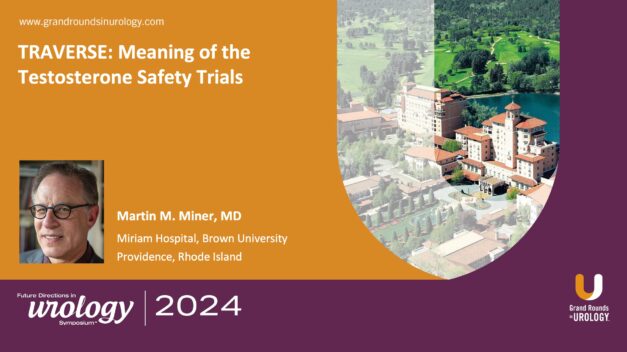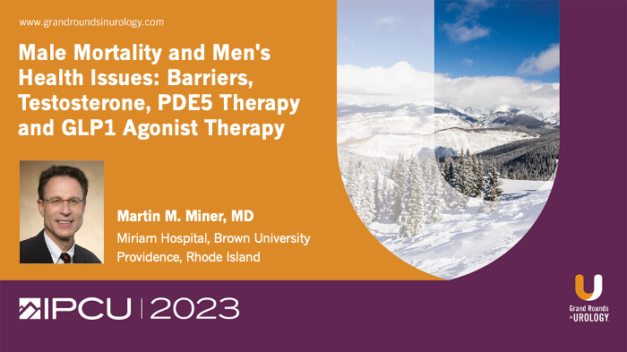Male Mortality Testosterone & Lean BM Preservation: Prevention of Sarcopenia & Frailty
Martin M. Miner, MD, reviews the expanding role of GLP-1 receptor agonists in men’s health, highlighting benefits for weight loss, cardiometabolic improvement, testosterone, fertility, and erectile function. He discusses strategies to preserve lean body mass and prevent sarcopenia, including resistance training and selective testosterone therapy.
Read More



